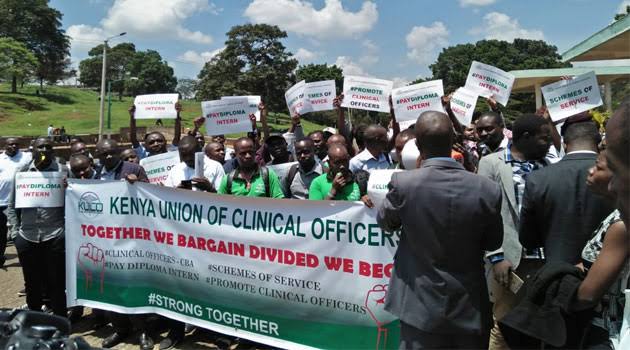Governor Sakaja vows to deregister private firms over illegal dumping of waste

Sakaja also highlighted the county government's plan to boost waste management by expanding infrastructure and increasing employment opportunities for young people who will help keep the streets clean.
Nairobi Governor Johnson Sakaja has issued a stern warning to private waste service providers involved in illegal dumping of waste across the city, threatening to deregister their businesses if they continue with these practices.
Speaking during a Radio Citizen interview on Wednesday, Sakaja revealed that some of these providers, despite being paid to collect and properly dispose of waste, have repeatedly dumped garbage at unauthorised sites, often under the cover of night.
More To Read
- City Hall moves to recognise urban farmers in policy review
- How Riruta’s upgrade to Level IV hospital is transforming healthcare across Dagoreti
- Why City Hall moved hospital accounts to Sidian Bank- Sakaja
- City residents say Nairobi's illegal billboard cleanup favours some areas over others
- Sakaja’s loan request for salaries draws ire from Nairobi MCAs for lack of details
- Eastleigh MCA blames county officials for destruction of newly built Captain Mungai Street
“When you go to some areas, such as Kawangware, we, as the county government, clean up these places, but after a while, these places get littered again. Some private service providers are being paid to collect waste, and then they are illegally dumping waste at night. We are going to deregister them,” Sakaja said on Wednesday.
The governor explained that these providers often hire youth to dump waste secretly at night to avoid being caught, contributing to the persistent filth in various parts of Nairobi.
He said this illegal dumping undermines the county’s efforts to keep the city clean and healthy.
Sakaja also highlighted the county government's plan to boost waste management by expanding infrastructure and increasing employment opportunities for young people who will help keep the streets clean.
“The last time the Nairobi county government hired people to clean the streets was in 1987, and you find that those who were hired are already old and want to retire. We also had a problem with equipment because you must have lorries and buckles and other facilities, and we have a plan to rectify this,” he said.
However, the governor acknowledged that delays in the release of county funds by the National Government have slowed down progress on more effective waste management solutions.
To address these challenges, Nairobi is set to operationalise the Green Nairobi Company, a long-term strategy aimed at curbing illegal waste disposal and transforming waste into energy.
“The soon-to-be-operational Green Nairobi Company Limited is designed to revolutionise waste management, provide long-term solutions for harnessing waste-to-energy, and enhance environmental cleanliness across the capital,” Sakaja explained.
The new company will model its operations after the Nairobi Water Company and will be wholly owned by the County Government of Nairobi.
Sakaja further added that the company will be run by a professional board of experts and led by a CEO, with full financial independence.
The Green Nairobi Company will also integrate the existing Green Army, offering permanent and pensionable employment to its members.
Similar waste-to-energy strategies have been successfully implemented in other African cities such as Johannesburg, Lagos, Addis Ababa, and Cape Town. Nairobi’s adoption of this model is expected to bring cleaner streets, better waste management, and sustainable environmental solutions for the city’s residents.
Top Stories Today
















































